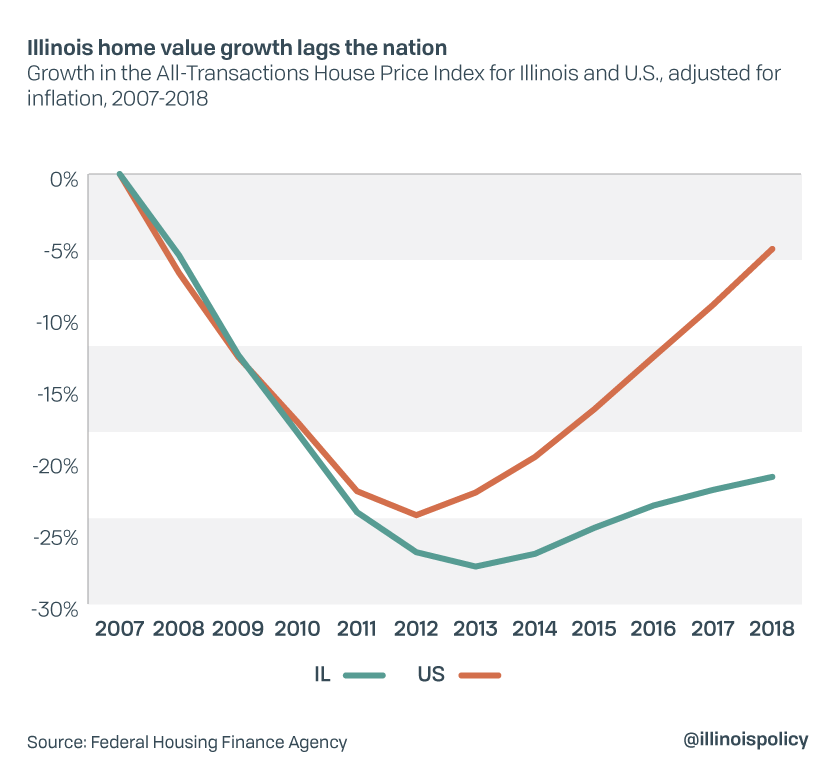In the recovery years that followed the nationwide housing market crash, Illinois’ housing appreciation has trailed far behind the national average.

Despite modest gains in July, when housing sales crept up by 0.3%, sales have remained weak overall. Home sales were especially weak in June, tracking 11% lower than they were the same time a year before.
In theory, falling building permits, lower housing inventory and declining borrowing costs should all lead to higher growth in home prices. But sky-high property tax bills have all but ensured that demand for Illinois homes – and therefore housing prices – remains weak, as buyers realize even if they can afford a home, massive property tax costs and low expected appreciation make owning a home in Illinois a losing proposition.
Had demand for housing in Illinois matched the rest of the nation, housing prices would have increased at a rate much closer to the national average. Instead, prospective homeowners in Illinois are increasingly looking across state lines for more welcoming tax climates where housing costs are much lower.
Unfortunately, uncertainty over taxes and the fiscal condition of the state is likely to cause economic activity to slow even more, further depressing housing demand and house value appreciation.
Gov. J.B. Pritzker’s property tax relief task force could help rescue the state from that trajectory by recommending reforms to state spending and public pensions, which would reduce policy uncertainty and the vicious cycle of decline in most of Illinois’ housing markets.
Without addressing Illinois’ fastest-growing line item – pension costs for government workers – property taxes will continue to rise. As Illinois homeowners get fewer and fewer services and poor returns on their greatest investment, they will continue to vote with their feet by moving elsewhere.